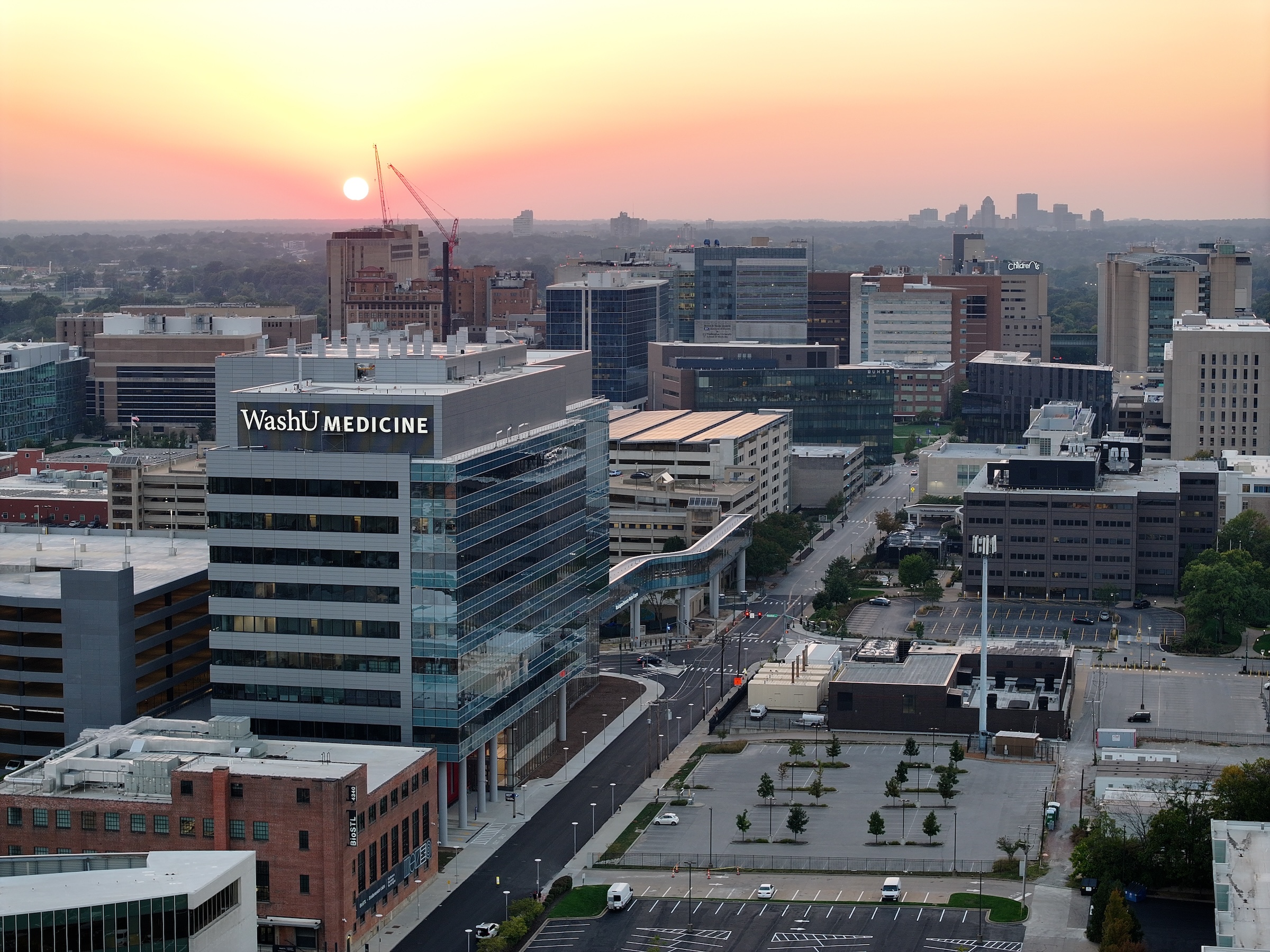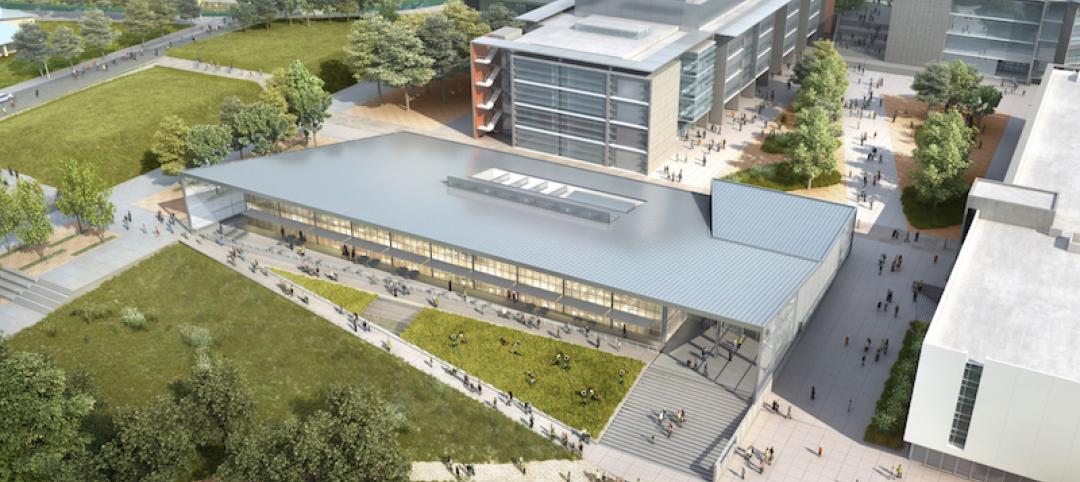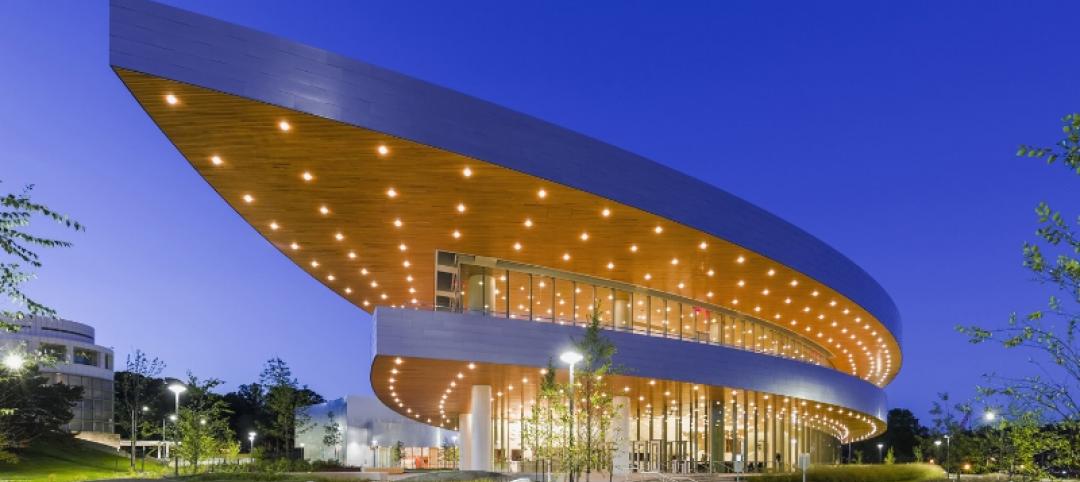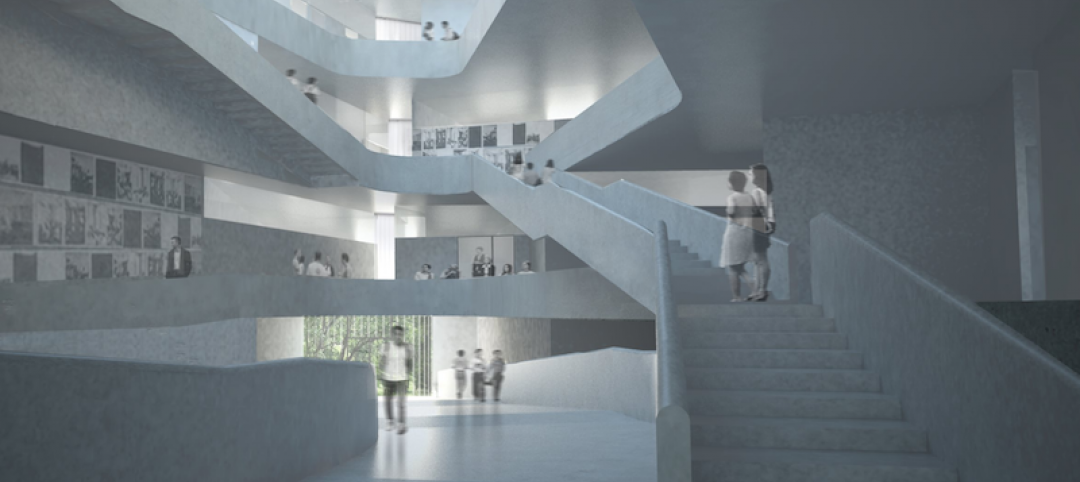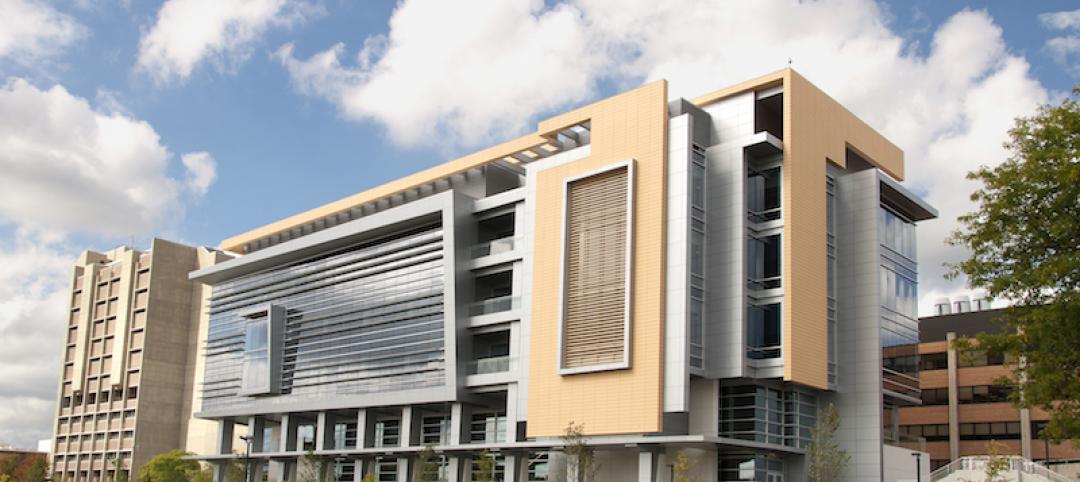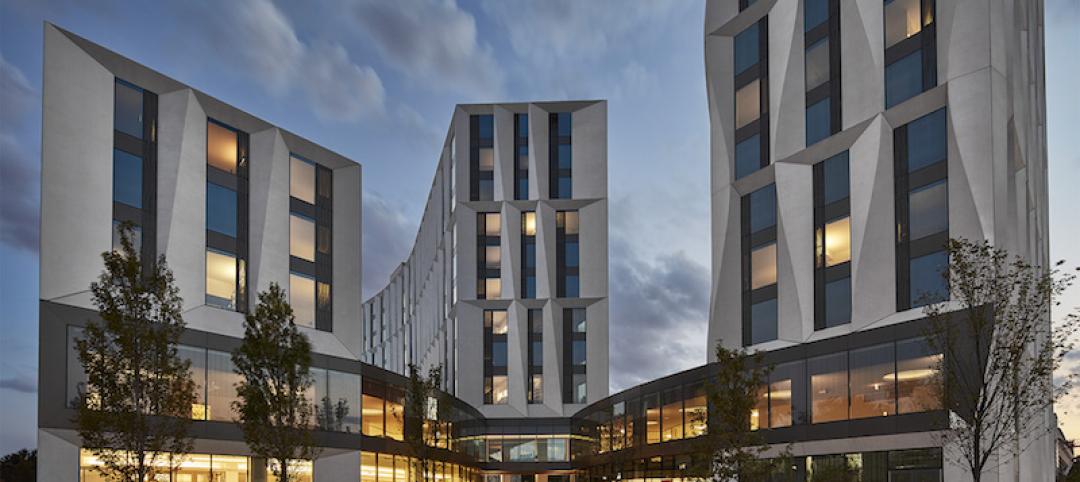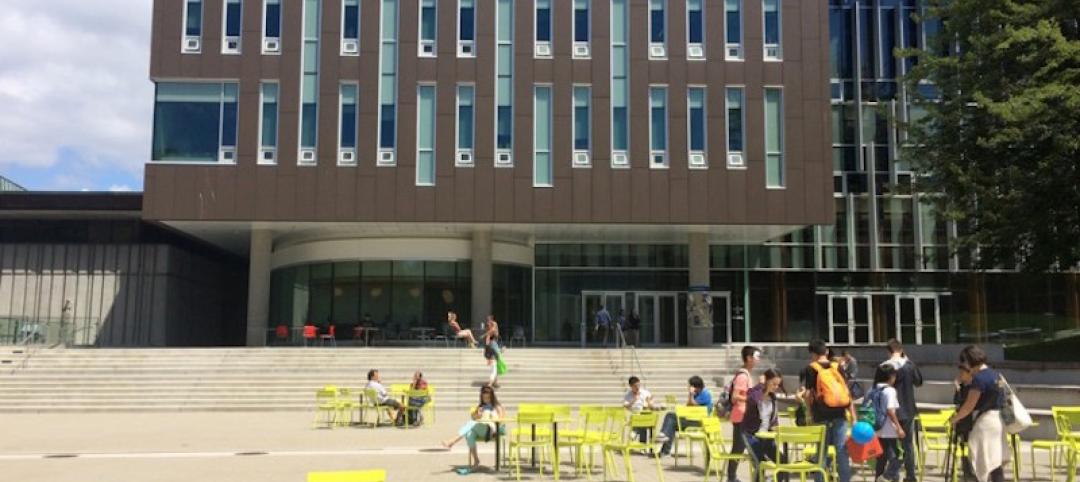In St. Louis’ Cortex Innovation District, Washington University School of Medicine recently opened its new Jeffrey T. Fort Neuroscience Research Building.
Designed by CannonDesign and Perkins&Will, the 11-story, 609,000-sf facility is one of the largest neuroscience buildings in the world, according to a statement from McCarthy Building Companies, Inc., the project’s construction manager.
Intended to advance research in areas such as Alzheimer’s disease and brain tumors, the $616 million facility currently accommodates 1,000 faculty and staff members, including 95 research teams. In the future, additional space could be constructed to accommodate an additional 350 faculty and staff members, including about 145 research teams.
The project faced labor and supply chain challenges when construction started in spring 2020, at the beginning of the COVID-19 pandemic. Despite this, the project finished on budget and on schedule. McCarthy attributes this success to effective pre-project planning and the use of lean construction techniques.
“Early collaboration played a pivotal role in the success of this project,” Andy Poirot, vice president and project executive, McCarthy Building Companies, Inc., said in the statement. “We successfully realized the client’s vision, delivering a cutting-edge research facility poised to enhance lives for generations to come.”
Prefabrication and 3D modeling also helped the team overcome the project constraints. About 90% of the mechanical, electrical, and plumbing (MEP) systems were prefabricated and tested before installation onsite. Prefab components both improved quality and reduced the number of onsite professionals needed for MEP installation. The building’s façade, with a unitized curtain wall, also was prefabricated.
In addition to the research building, the facility features a parking structure with 1,846 vehicle spaces as well as bicycle racks and electric vehicle charging stations. A 1,000-ft elevated pedestrian connection spans 360 ft, connecting the new building to an existing parking garage and surrounding structures. The project also includes a two-story, 24,775-sf utility plant.
The project is designed to achieve LEED Gold certification.
On the Building Team:
Owner: Washington University School of Medicine
Architect of record and structural engineer: CannonDesign
Design architect: Perkins&Will
MEP engineer: Affiliated Engineers, Inc., with CannonDesign also on mechanicals
Construction manager: McCarthy Building Companies, Inc., partnered with Tarlton Corporation and KAI Enterprises
Related Stories
University Buildings | Nov 18, 2016
Stephen F. Austin State University’s new STEM building breaks ground
Kirksey Architecture designed the building that ‘will serve as a landmark for SFA.’
University Buildings | Oct 25, 2016
Columbia University dedicates its new campus with great fanfare
Transparency to the surrounding community played a big role in the campus’s design.
School Construction | Oct 23, 2016
As construction rebounds, education sector spending flattens
Post-recession slump suggests a settling in at a “normal” level similar to the mid aughts.
University Buildings | Oct 19, 2016
UC Merced to nearly double its size by 2020
Its growth strategy includes adding 1.2 million sf of space for teaching, housing, and research.
University Buildings | Oct 12, 2016
The new Hancher Auditorium opens on University of Iowa campus
The building replaces the previous Hancher, which was irreparably damaged in the 2008 flood.
University Buildings | Oct 11, 2016
The University of Iowa gets a new Visual Arts Building
The building was a collaborative effort between BNIM and Steven Holl Architects and marks the sixth facility the two firms have worked together on
Sponsored | University Buildings | Oct 3, 2016
Enhancing university life: The smart shower bead
Residential spaces that need to meet high traffic demands while accommodating an ever-changing populace creates a unique set of obstacles for any educational institution’s housing.
Sponsored | University Buildings | Sep 29, 2016
UWM’s Kenwood Interdisciplinary Research Complex: The most distinctive building on campus
The largest building on campus, it was designed by Flad Architects to comply with LEED Gold Certification standards and to meet a wide range of current and future academic needs.
University Buildings | Sep 12, 2016
The University of Chicago’s newest residence halls are designed to be more like home
Abundant common spaces give students more chances to interact.
University Buildings | Aug 17, 2016
Supporting communities of motivated learners: reflections on SCUP-51
The two themes that were consistently woven into different topics were institutional transformation and connection with students.


